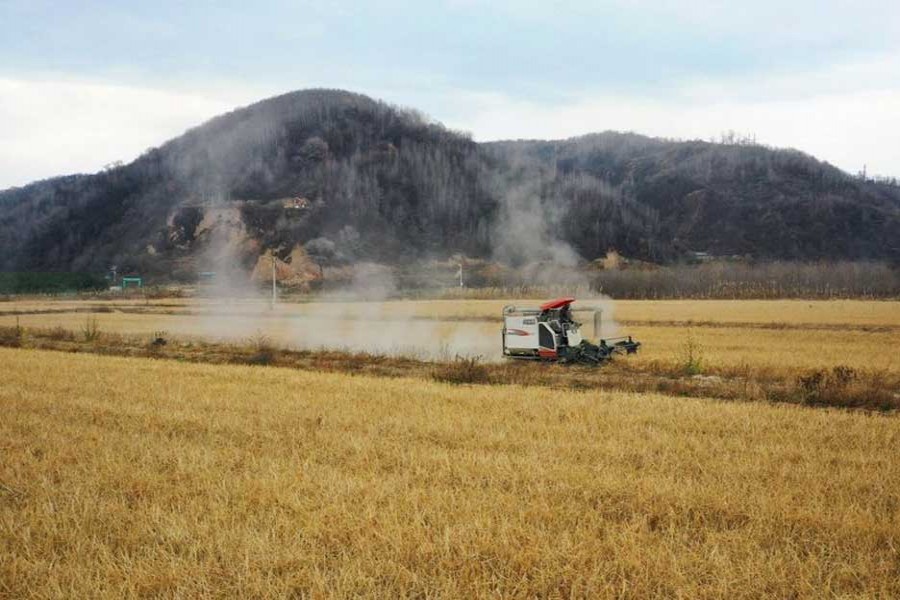
Published :
Updated :

The greenhouse gas emissions from China's rice fields have been reduced by 70 per cent over the past five decades, according to a recent Chinese study.
China's rice agriculture, a primary source of greenhouse gas emissions, has experienced great changes in the last five decades due to changes in dominant varieties and farming practices. Researchers from the Chinese Academy of Agricultural Sciences comprehensively assessed the impacts of these changes on greenhouse gas emissions.
Through large-scale variety comparison, field monitoring and historical data mining, researchers found that China's average yield of rice has increased by 130 per cent over the past five decades. With rice planting area shifting northwards, the adoption of high-yielding varieties and innovation in irrigation systems, the greenhouse gas emissions from China's rice fields have been reduced by 70 per cent, with the reduction of methane emissions most significant.
The findings illustrate that it is possible to enhance rice productivity at reduced environmental costs through screening for low emission varieties and agronomic techniques. Future innovations should ensure that rice farming progressively adapts to climate change, while continuing to reduce greenhouse gas emissions, according to the study.
The study was published in the journal Environmental Research Letters.


 For all latest news, follow The Financial Express Google News channel.
For all latest news, follow The Financial Express Google News channel.